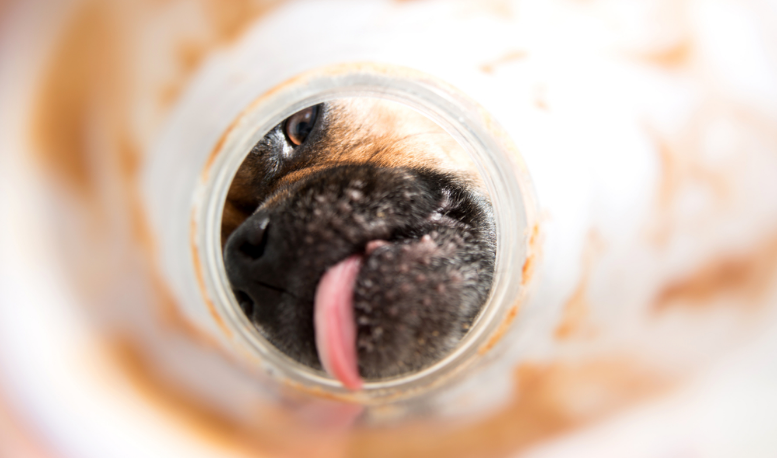Most dog lovers have had to give medications to their dog. Sometimes the meds are flavored and appealing and sometimes they aren’t. Many dog owners and vets alike have hidden pills in peanut butter. Peanut butter is excellent camouflage to hide bitterness and is very popular among dogs.
Recently, certain food manufacturers have started to add xylitol to peanut butter to try to make it a lower calorie choice for those people watching calorie intake. Xylitol is a sugar substitute found mostly in candies, desserts and gums, but also in some vitamin supplements (for humans) and medications.
RELATED STORY:
RELATED STORY:
Because of the way dogs metabolize it, xylitol can cause a life-threatening drop in blood sugar (glucose) and liver damage in some dogs. There is no part of this goodie that you should share. Affected dogs will stagger and even collapse. If you think that your dog may have eaten any xylitol, it is critical to see your vet or animal ER.
RELATED STORY:
The logic behind production of the line of special butters for humans is reducing the high calorie and fat content naturally found in nuts. This concern is also pertinent to dogs and even regular xylitol-free peanut butters should be for occasional treats or pill disguise only. Obesity is a national epidemic in companion pets and shortens dogs’ lives. Other complications associated with fat ingestion can include pancreatitis and cholangiohepatitis (disorders of gall bladder and liver), so think before you offer anything that is high in fat.












